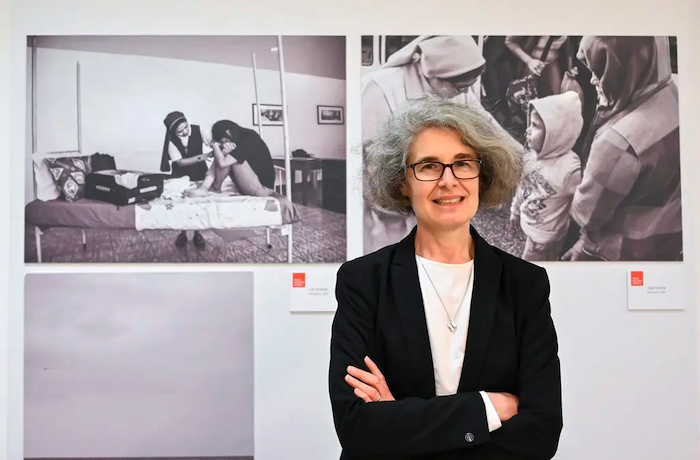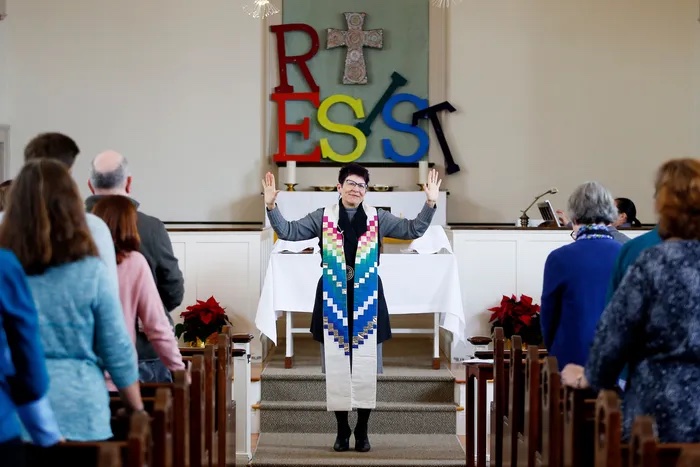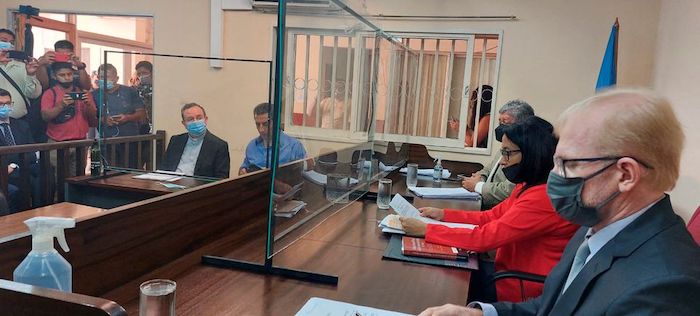Sister Nathalie Becquart will play a prominent role at the Synod of Bishops next year as Pope Francis tries to encourage new voices in the hierarchy.

By Celestine Bohlen
Sister Nathalie Becquart, 53, a French Roman Catholic nun, was named to serve as under secretary of the Synod of Bishops, a summit of 250 bishops from around the world that will meet in Rome in 2023. She will become the first woman with a right to vote at such a high-level Vatican gathering.
What is the significance of your appointment?
We can read this as a call by Pope Francis to have a woman be there — not just as a woman, but as a lay person. I am a lay woman, since as religious (a church term for members of religious orders), we are not clerics. He really believes that the Holy Spirit speaks not only through the hierarchy, but also through all baptized people.
At the beginning of the church, there was this idea that the church was first of all a community. Then, for many historical reasons, the church put the focus on the institutional hierarchy. And now we rediscover that the main focus of the church is people walking together: Everyone has a role. Nobody should be set aside. We are together, the church, the people of God, all of us — bishops, men, women, lay people, religious, married, single, children — baptized. So we all have to be protagonists of the mission of the church.
What kind of issues will you be voting on at the synod?
That’s difficult to say. The Synod of Bishops is a process, one that was founded at the end of Vatican II as a way to continue the experience of the pope meeting with all the bishops, an advisory body for the pope. Now, it is a listening process that has already started in dioceses all over the world. This synod — which follows synods on youth (2018) and on the Amazon region (2019) — is about what kind of church we want to be, how we can best serve the world.
So far we are at the listening stage, the first time in the history of the church that we have such a broad-based listening process.
How has Pope Francis given women a greater voice in the Church? What difference has it made?
Pope Francis has been trying to fill the gap that has sometimes been put between leaders and faithful — those who know or who teach, on one side, and the rest.
Women are a part of the church. Which is why it is so important that they have a voice, that they participate. There was a major change a year ago when Pope Francis opened up the possibility for women to have a specific role (in church services) as lectors and acolytes; before, that was only for men.
What are the obstacles to women being ordained priests in the Catholic Church?
The vision of Pope Francis, through this synod, is to get rid of a clerical church and move to a synodal church — to disconnect participation in the leadership of the church from ordination. We can say that the way now opening up is to listen to all different views; for instance, not everyone thinks ordination of women is a good path. You have some groups calling for that, but you also have some groups calling for new ministries.
The question of women is a sign of the times. It is a powerful call within our societies and in the church. The church has already said we should fight against any discrimination against women. But it is a long way, not only in the church.
What have been your experiences as a woman in what were once all-male gatherings?
I was the first woman to be director of the national office of youth and vocation at the French Catholic Bishops Conference; before it was always a priest. At a gathering in Lourdes, I remember a very old bishop asked me, “So whose secretary are you?” I said, “No, not a secretary, I am a director of a national office.” He was a little bit surprised because someone from his generation — they were usually trained in minor seminaries since the age of 12 — didn’t have a lot of experience with women.
The younger generation is different; many have had professional experiences. I work with young priests, and for many of them, working in team with women who may be their boss, it is no longer a question.
You have degrees in business management, philosophy, sociology and theology; you have worked as a volunteer in Lebanon; studied in Boston and Chicago; and worked as a consultant at a marketing agency for nongovernmental and religious organizations. What parts of that experience led you to this critical — maybe history-making — role at the heart of the Catholic Church?
When I was young, I was a girl scout and later a scout leader. It was kind of a school of leadership.
As a student at HEC Paris (the prestigious business school), I specialized in entrepreneurship, how to take risks, to organize a business plan. I learned a lot about how to work as a team, about project management, how to develop the spirit of entrepreneurship, how to take risks.
I became a nun in 1995, at age 26, so there is also my experience in religious life. I would highlight my spiritual path of transformation, of conversion, of living in a community. Throughout life, you face difficulties, crises, storms. But if you are really rooted in faith, and sure that Christ is with you, the main message of the Gospels and the church is that darkness is not the end. There is always this message of hope and resurrection. This has helped me, even through difficult times.
You are also a great sailor.
I am a skipper! And yes, sailing has been a great school of life and leadership. When you are a skipper, you have to listen to your crew. For many years, I received the gift to sail and lead retreats for young adults. It was a way to put together my experience sailing and my call for a ministry to help young people. Truly, the sea is my place.
Complete Article ↪HERE↩!


